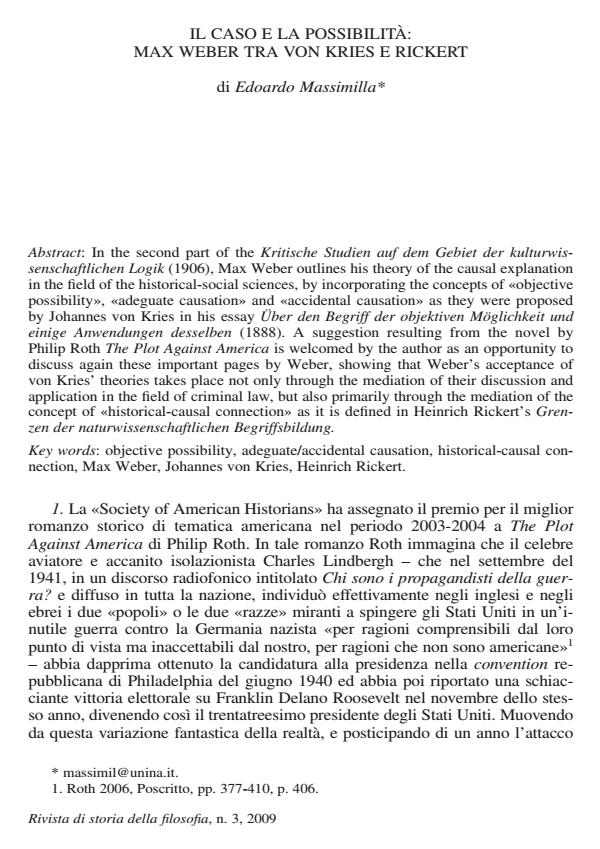Il caso e la possibilità: Max Weber tra von Kries e Rickert
Journal title RIVISTA DI STORIA DELLA FILOSOFIA
Author/s Edoardo Massimilla
Publishing Year 2009 Issue 2009/3 Language Italian
Pages 14 P. 491-504 File size 580 KB
DOI 10.3280/SF2009-003003
DOI is like a bar code for intellectual property: to have more infomation
click here
Below, you can see the article first page
If you want to buy this article in PDF format, you can do it, following the instructions to buy download credits

FrancoAngeli is member of Publishers International Linking Association, Inc (PILA), a not-for-profit association which run the CrossRef service enabling links to and from online scholarly content.
Il caso e la possibilità: Max Weber tra von Kries e Rickert - In the second part of the Kritische Studien auf dem Gebiet der kulturwissenschaftlichen Logik (1906), Max Weber outlines his theory of the causal explanation in the field of the historical-social sciences, by incorporating the concepts of «objective possibility», «adeguate causation» and «accidental causation» as they were proposed by Johannes von Kries in his essay Über den Begriff der objektiven Möglichkeit und einige Anwendungen desselben (1888). A suggestion resulting from the novel by Philip Roth The Plot Against America is welcomed by the author as an opportunity to discuss again these important pages by Weber, showing that Weber’s acceptance of von Kries’ theories takes place not only through the mediation of their discussion and application in the field of criminal law, but also primarily through the mediation of the concept of «historical-causal connection» as it is defined in Heinrich Rickert’s Grenzen der naturwissenschaftlichen Begriffsbildung.
Key words: objective possibility, adeguate/accidental causation, historical-causal connection, Max Weber, Johannes von Kries, Heinrich Rickert.
- Sociological Theory Alessandro Orsini, pp.157 (ISBN:978-3-031-52538-4)
Edoardo Massimilla, Il caso e la possibilità: Max Weber tra von Kries e Rickert in "RIVISTA DI STORIA DELLA FILOSOFIA" 3/2009, pp 491-504, DOI: 10.3280/SF2009-003003